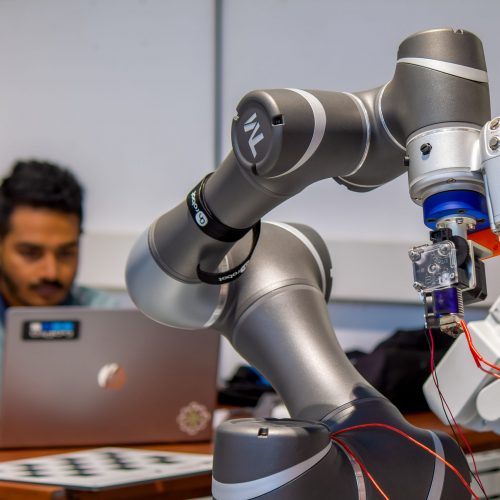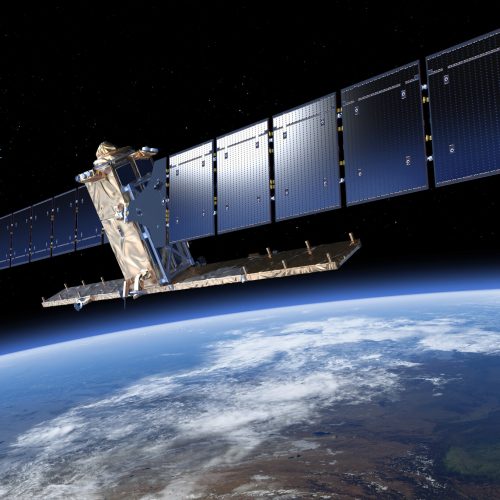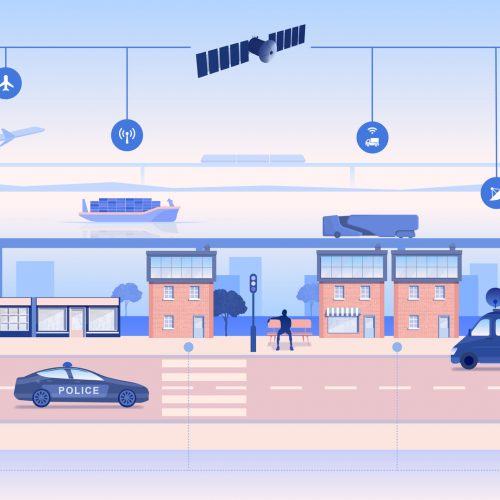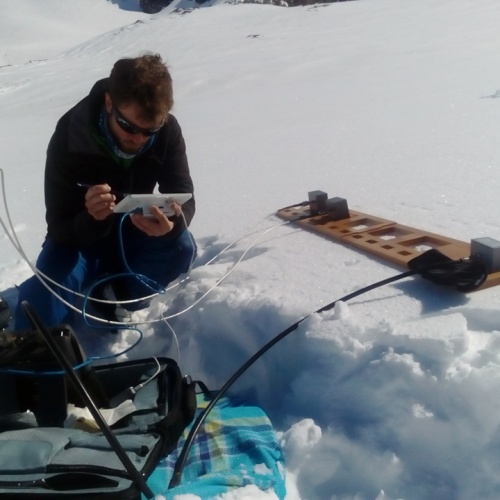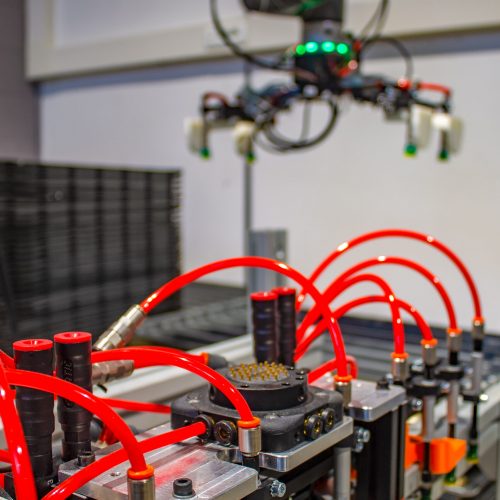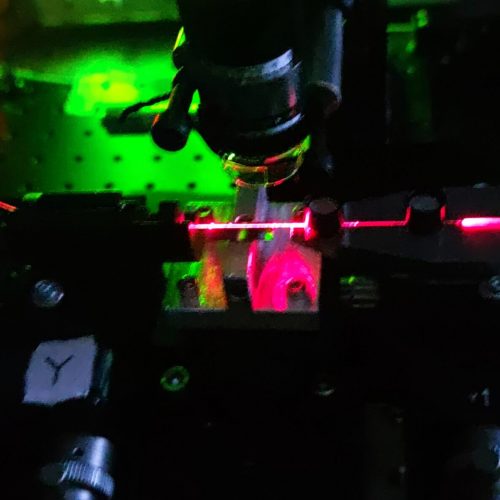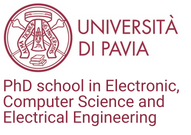The activity of the PhD school is organised into eight paths which are mainly supported by the expertise available at the Department of Electrical, Computer and Biomedical Engineering.
Photonics – Microwave Technologies – Communication Systems
Artificial Intelligence and Computer Vision – Cyber Physical Systems – Automation
Electrical Engineering – Mechatronics and Robotics
The Photonics path provides students with specific training in the field of photonic devices and systems for the generation, manipulation and detection of laser radiation. Research projects cover both basic aspects (such as radiation-matter interaction and non-linear optics) and the development of photonic devices for various applications, based on free-space or integrated technologies. Main fields of study are signal processing devices for optical communications design and characterisation of integrated photonic circuits for linear and nonlinear applications on innovative platforms sensor technology for environmental and structural monitoring industrial applications of lasers development of biophotonic devices for medical diagnosis and treatment.
The Microwave Technologies path addresses the development of solutions and technologies for components and systems operating in the field of micro- and milli-meter waves. These structures find a variety of applications in transmission systems (transmission lines, components and antennas for 5G and 6G systems, based on planar technologies, substrate integrated waveguide, 3D printing, and new materials such as graphene) terrestrial and space communications (components and fixed and reconfigurable beam antennas for terrestrial radio links and support systems for space exploration) sensors for the dielectric characterisation of materials and for measuring rotation and distance (based on planar technologies, 3D printing and hybrid solutions) radar systems for environmental monitoring (particularly of the cryosphere) and for biomedical applications (with reference to oncology diagnostics).
The Communication Systems path focuses on the management, transmission, processing and interpretation of signals and associated information using both traditional and artificial intelligence (AI)-based methods. The PhD student will acquire theoretical and operational knowledge on 5G and 6G terrestrial communications, sensor networks, Internet of Things (IoT), synergies between communication and sensing (joint communication and sensing) and between communication and power transfer (joint communication and power transfer), also using AI-native techniques. The main applications addressed are space and intra-body communications, networks, remote sensing and satellite Earth observation in both optical and microwave domains.
The Artificial Intelligence and Computer Vision offers students the opportunity to delve into the basic themes of artificial intelligence and computer vision, the theoretical foundations and application aspects of which are dealt with. Topics include data science, machine learning (including statistical and deep learning), natural language processing, multimedia and human-computer interaction. The application areas covered are varied, and include industrial automation, cultural heritage management, medicine and cybersecurity. The curriculum also includes the application of artificial intelligence to finance, thanks to the collaboration with researchers from the Department of Economics at the University of Pavia.
Cyber-physical systems find wide application in the fields of automotive, robotics, avionics, transport, industrial automation, healthcare, wellness and smart living. They are strongly related to application software, control algorithms, physical processes, programming languages, operating systems, communication protocols and hardware platforms. This path aims to cover most of the topics related to specific communication protocols in embedded acquisition systems, real time processing requirements and cybersecurity implemented through innovative AI approaches. The path also offers training on computer graphics and virtual reality modelling technologies used in the entertainment industry and cultural heritage management.
The Automation curriculum covers control theory, process control, industrial automation, machine learning, pattern identification and data analysis. Application areas include robotics, energy, automotive, semiconductor manufacturing, systems biology and pharmacological modelling.
The Electrical Engineering curriculum provides specific skills in the areas of energy management and distribution, industrial electrical engineering, converters, electrical machines and drives and electrical power systems, with a focus on the ability to develop innovative models for the analysis and design of complex systems. This course is developed under an international agreement with the Lodz University of Technology, Poland.
The Mechatronics and Robotics curriculum aims to train researchers in the fields of applied machine mechanics, industrial engineering design and methods, robotics, mechatronics, mechanical and thermal measurements, mechanical design and construction of machines, process technologies and systems.
